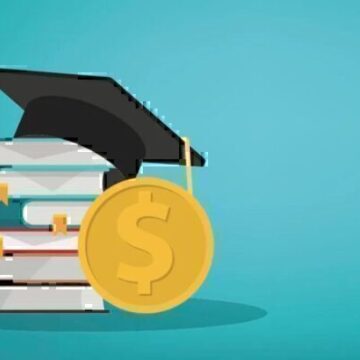It’s hardly news to anyone that education comes with an expensive price tag. Case in point: the average public university student borrows $32,880 in order to attain a bachelor’s degree. Some students are currently managing multiple loans, and in this case it pays to ask the question: is loan consolidation a smart move?
Even as public loan forgiveness is debated by lawmakers, borrowers are wise to stay informed of their debt management options. There are several factors to consider for both federal loans and private loans. Let’s examine the pros and cons of reconsolidating and refinancing in both scenarios.
Federal Loan Consolidation
You can apply for a Direct Consolidation Loan which allows you to combine one or more federal education loans. Your repayment begins 60 days after the loan is paid out, and there is no cost in applying.
Pros
- One bill: Rather than juggling several loan payments, you’ll only have one. Having fewer bills to keep track of makes staying on top of payment deadlines more manageable and reduces the chances of missing or late payments which have a direct impact on your credit score.
- Lower monthly payment: A standard loan repayment is ten years but with a Direct Consolidation Loan, you could have a repayment timeline of up to 30 years. This can make your monthly payments more affordable as they’ll be spread over a longer repayment period.
- Access to repayment plans and forgiveness: Not all loans are created equal. FFEL and Perkins Loans don’t qualify for certain income-driven repayment plans or Public Service Loan Forgiveness (PSLF), for example. But if you combine those loans into a Direct Consolidation Loan, you can gain access to those programs; programs that can offer relief if you’re struggling to stay on top of payments.
Cons
- Longer repayment: While having a longer repayment period does translate to a lower monthly payment, the flipside of that equation is that you’ll be in debt longer and it will cost you more interest over time. If your budget allows, pay more than the minimum monthly amount.
- Loss of federal benefits and forgiveness: In deciding to consolidate loans that aren’t Direct Loans, it’s possible that you could lose access to interest rate discounts, principal rebates, income-based repayment plans and forgiveness programs like PLSF.
- Added interest: Unpaid interest on the loans you’re consolidating doesn’t disappear, unfortunately. That interest is added to the principal balance when you consolidate your loans. Interest then accrues on this higher balance.
GreenPath Financial Service
Resources for Students and Graduates
If you’re starting college or is now repaying your student loans, take a look at these resources from GreenPath. These resources can help you plan for a financially healthy future.
Private Loan Refinancing
Private student loans cannot be consolidated with federal student loans since consolidation is done through the U.S. Department of Education. You can, however, refinance your private education loans (in you replace one or more private loans with another.) This happens through a private bank, credit union, or online lender.
Pros
- Lower interest: If you have reliable income and good credit, you could qualify for a lower interest rate than the one you currently have on your existing debt. Depending on the amount you’ve borrowed, high interest could cost you thousands of dollars over time. With a low rate, you save more, and you’re also better positioned to pay down principal faster.
- Lower monthly payment: You can choose a new loan term when refinancing private loans (with lenders offering options ranging from five to 20 years.) Opting for a longer repayment timeline can translate to lower monthly payments.
- Simplified money management: As with federal loan consolidation, refinancing private loans allows you the benefit of a single monthly payment versus several.
Cons
- Locked into a plan: refinancing your loans means locking yourself into new loan terms and a repayment plan. You are committed to these terms until the loan is paid in full (or unless you choose to refinance again down the road.)
- You may not qualify for low interest: If your income isn’t reliable or you have poor credit, you may not be eligible for favorable, money-saving interest rates. Depending on your financial picture, you may also be required to have a cosigner when you refinance.
- Longer repayment: When you refinance your private loans you have the option of choosing a longer repayment term. This is something you’ll want to weigh. Choosing a longer repayment timeframe—while it could translate to a lower monthly payment—also has the drawback of keeping you in debt longer.
A Note on Federal Student Loan Debt Relief
As of this writing, student loan debt relief offered through the Biden-Harris administration is currently blocked through court order. The U.S. Department of Education is not currently accepting applications for loan forgiveness. If you’ve already applied, your application is being held, and you can visit The Federal Student Aid page for future updates.










